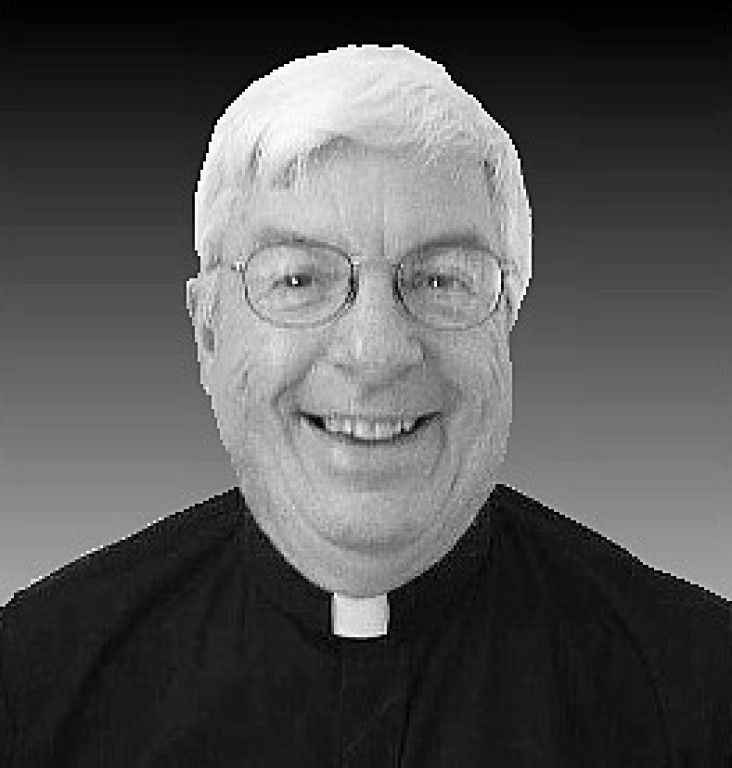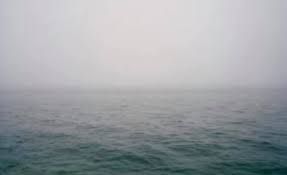 Faith in a Love that Never Dies
Faith in a Love that Never Dies
Our gospel for this Second Sunday of Easter is the famous “doubting Thomas” story. As you may recall, Jesus appeared to the disciples shortly after the resurrection. Thomas, however, was absent, and the others tell him that they had seen the Lord, risen from the dead. Thomas refuses to believe them, and famously says that unless he puts his finger into the nail marks and his hand into the side of Jesus, he will not believe. A week later Jesus comes back, shows Thomas his wounds, and invites Thomas to believe—which he does. Jesus then says, “Have you come to believe because you have seen me? Blessed are those who have not seen and have believed.”
Jesus is referring to faith, which along with belief, trust and loyalty, includes “firm belief in something for which there is no proof,” according to the Merriam-Webster dictionary. This week’s gospel story is unique in that, while proof exists , Thomas refuses to believe because he doesn’t have it (yet). Thomas could have come to faith on the basis of the testimony of his friends, but for Thomas this is not enough. In the end, Thomas gets his proof, and he reverences Jesus as his Lord and God.
The gospel puts us in the same position as Thomas at the beginning of the story. It claims that proof for Jesus’ resurrection exists, but it is based on testimony, not in direct evidence available to us. John ends the narrative by noting, “Now, Jesus did many other signs in the presence of his disciples that are not written in this book. But these are written that you may come to believe that Jesus is the Christ, the Son of God, and that through this belief you may have life in his name.” Do we have faith? And if so, what does it look like?
The story is told of a grandfather, who is babysitting, passing by the room of his granddaughter. He overhears her reciting the alphabet in an oddly reverent fashion. “What on earth are you up to?” he asks. “I’m saying my prayers,” explains the little girl. “But I can’t think of exactly the right words tonight, so I’m just saying all the letters. God will put them together for me, because he knows what I’m thinking.” Now, that’s faith—the faith of a child. But is it enough for us when we become adults?
Sometimes, we get pushed into faith….There is a story about Charlie, who sat by the hospital bed of his young son, just out from emergency surgery. Dreadful thoughts kept creeping into his mind. Why hadn’t he called the doctor sooner? Why had he not suspected that his son’s troubles were more than just a stomach ache? Why? Why?
Suddenly, the youngster stirred, opened his eyes, and saw his father sitting there. The lad stretched out his small hand to his father and said, “Hold my hand, Daddy; I hurt so bad.” Charlie took his son’s hand; the small boy smiled weakly and drifted off into unconsciousness again. Then Charlie, taking a cue from his son, bowed his head, closed his eyes, and whispered, “Hold my hand, Father; I hurt.”
On Friday, March 27 th , Pope Francis offered a special blessing, Urbi et Orbi (to the city of Rome and the world) during this time of coronavirus pandemic. For his reflection, he chose as his text Mark 4:35-41. The disciples are in a boat with Jesus, who is comfortably sleeping, when a violent storm arises on the lake. The disciples wake Jesus and say, “Teacher, does it not matter to you that we are going to drown?” Jesus calms the storm and then asks, “Why are you so terrified? Why are you lacking in faith?”
Here is a part of Pope Francis’ reflection: “Lord your word this evening strikes us, all of us. In this world that you love more than we do, we have gone ahead at breakneck speed, feeling powerful and able to do anything. Greedy for profit, we let ourselves get caught up in things and lured away by haste. We did not stop at your reproach to us, we were not shaken awake by wars or injustice across the world nor did we listen to the cry of the poor or of our ailing planet. We carried on regardless, thinking we would stay healthy in a world that was sick. Now that we are in a stormy sea, we implore you, ‘Wake up, Lord!’
“Why are you afraid? Have you no faith?’ Lord, you are calling to us, calling us to faith. Which is not so much believing that you exist but coming to you and trusting in you. This Lent your call reverberates urgently: ‘Be converted!’ ‘Return to me with all your heart’ (Joel 2:12). You are calling on us to seize this time of trial as a time of choosing. It is not the time of your judgment but of our judgment: a time to choose what matters and what passes away, a time to separate what is necessary from what is not. It is a time to get our lives back on track with regard to you, Lord, and to others” (emphases added).
Notice that the Holy Father defines faith, not so much as an intellectual belief, but rather as a life stance of turning to the Lord and trusting in him. Also, note that he rejects the idea that this pandemic is God’s punishment. If it were a punishment by a vengeful God, then it would be unjust because it would harm those who are most weak and vulnerable, those who, the bible teaches, are the ones to whom God is closest! A pandemic that does not discriminate would be highly inappropriate for a God who loves justice and right. Rather, the Holy Father insists, this is a time for us to wake up from our sleepy attitudes and, and for us to judge what we must now do—getting our lives “back on track” in our most important relationships, with God and with each other, especially those who are most dear to us, and those in our world who are unjustly treated or most vulnerable.
In the story of the sick boy, faith gets kicked into action when his father realizes that he is not self-sufficient. Even with the best of intentions, and the best planning, he does not control everything. He realizes that he, and his suffering son, are in need of God, in need of salvation.
I invite you to take up Pope Francis’ challenge of reordering our lives away from fear and panic, and toward faith and trust. When we experience storms, the gospel asks us to remember that Jesus is in the boat with us. And, as the Pope so beautifully reminds us, the Lord “brings serenity into our storms because with God life never dies.”
At the heart of our faith, then, is the Easter message. The cross may come, as it did to Jesus. And while suffering and death come into our world, they do not have the final word because with God “life never dies”. As surely as the day follows night, Easter follows Good Friday. Blessed are those who have not seen, yet believe.
You might also like
Father's Homilies




